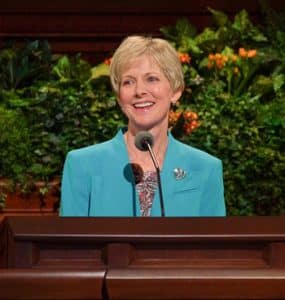I was 18 and preparing to go home for my first holiday break from University. As an out-of state student in in Utah, I had the opportunity to meet people not much older (or even the same age as me) who were already married. In coming to know these newlyweds strangely close in age to me, I began to be educated about the important aspects of a wedded couple’s first Christmas: Declare which Christmas stocking was your’s, create and instigate a holiday routine- who’s house for which holiday, set up parameters regarding what constitutes a “family gift” (i.e. vacuums, Kitchen Aid mixers, electronic games and snow blowers do not count), etc.
But in the dozen years following my 18th year, I remained unmarried. Physical distance increased as I moved to find my own path, and growing systematically more tired of the politics and hurt feelings associated with familial “non-invitations” and “must-attend” obligations, I decided to liberate myself. Christmas day for me was spent in my own apartment, alone. I opened gifts from friends, had a good work out, caught up on movies, chatted for hours with single friends— often while wearing a face masque. It was my day to spoil myself and I loved it.
to find my own path, and growing systematically more tired of the politics and hurt feelings associated with familial “non-invitations” and “must-attend” obligations, I decided to liberate myself. Christmas day for me was spent in my own apartment, alone. I opened gifts from friends, had a good work out, caught up on movies, chatted for hours with single friends— often while wearing a face masque. It was my day to spoil myself and I loved it.
But then, I married. Not only that, I married an Australian. He nicknamed me spunky. And I moved to Australia. Though I had spent the majority of my adult Christmases alone, the advertised traditional trimmings changed from the northern hemisphere’s winter of roasted turkey and ham, warm socks and scarves to the southern hemisphere’s summer of iced soft drinks, BBQed prawns, SPF30+ sunscreen and beach gear.
And, like many other things, the forewarning I had at 18 to communicate my holiday expectations had long been forgotten. Thus, I prepared for a day at home by collecting and renting a number of movies. My only real modification was that I included a gift to give to my new husband, and filled the fridge with cold soda.
But this was not my husband’s idea of Christmas. As I made myself comfortable on the lounge on Christmas morning, he got dressed up. He did not communicate to me his expectation that we would go to his parents’ house for all of Christmas and Boxing days for the two day period (even though they were just a 10 minute drive away). And, in full confession, though my actions signified an intended day at home, my words did not express this. There was no discussion, and our Christmases collided into a day of failed expectations, hurt feelings and confusion. Over the next few years, we modified, argued, laughed and cried over what we wanted Christmas to be. The end result was magnificent. We spent Christmas day at home, usually in bed, having sex, eating chocolate and watching movies. Boxing Day (December 26), we spent with his parents, telling them about the movies we had seen. Being unintentionally childless, this suited us well and we were happy.
So. What does this have to do with the Visiting Teaching message? The focus in the formal message is on the “Only Begotten” aspect of Christ’s being. As the message states:
Jesus Christ, is called the Only Begotten Son because He is the only person on earth to be born of a mortal mother and an immortal Father. He inherited divine powers from God, His Father. From His mother, Mary, He inherited mortality and was subject to hunger, thirst, fatigue, pain, and death.
I love this reminder, that Christ had the immortal strength of God in his DNA; in this, I am reminded that I am not meant, or able to be perfect. And though I seek to follow Christ’s example, it is impossible for me to be perfect. And not being perfect is okay. Like the folkloric Amish quilt made with a purposeful error, we are designed to be imperfect, inadequate and flawed as a condition of mortality.(1) So the fact that my Christmases are not really all that traditional, or even set in any one way from year to year, just like me, my Christmas need not be perfect. Messing up is not only okay, it is what I am meant to do.
Oh, yes. Even at Christmastime, we are supposed to make mistakes. As President Dieter F. Uchtdorf said at this past conference, “God is perfect, and His doctrine is pure. But He works through us—His imperfect children—and imperfect people make mistakes.”
 Christmas, and its trimmings, no matter how hard we work at it, will not be perfect. This means we all need to shift and adjust and change and communicate– in order to find peace and balance. Sometimes this means we need to end old customs, create new traditions, and accept that life is not perfect. Life really can’t be the same from year to year.
Christmas, and its trimmings, no matter how hard we work at it, will not be perfect. This means we all need to shift and adjust and change and communicate– in order to find peace and balance. Sometimes this means we need to end old customs, create new traditions, and accept that life is not perfect. Life really can’t be the same from year to year.
Importantly, the visiting teaching message this month is inclusive of women in the scriptures. As you would guess, Mary, the mother of Christ, is noted. For most of my life, I struggled to relate to Mary, and disliked Christmas focus on her. I think that most of this discomfort came because as an infertile woman, I was angry at the seemingly unending referral of her as a “vessel.” (see Alma 7:10) I wanted to be a vessel as well—I wanted to carry a child. But my body would not. Could not. Cannot. So I envied Mary and those who like her, were physical vessels for beautiful, perfect children.
In the dozen years since my marriage, I continually lost in my war with infertility. For me, focusing on Mary could not bring me solace. My physical vessel was broken and imperfect. And she? Well, she is the mother of God. She could never want to be in my company, I concluded. I was just too imperfect.
On the other hand was Mary’s cousin Elisabeth. Elisabeth’s story soothed me. After a lifetime of childlessness, she still conceived (Luke 1:26). Mary’s story in its traditional sense depressed and isolated me, but Elisabeth’s story gave me some hope. For me, the story of the first Christmas can only be told properly with the inclusion of Elisabeth. Christmas became, and is, the hope of Elisabeth. She, like me, was imperfect. And yet, somehow, she was not forsaken. I needed her to remind me that I was not forsaken in my perceived imperfection. I might not feel good enough to be in the company of the physical vessel that was Mary, but my Christmas could be the hope of Elisabeth.
And then I read this:
Mary was great not only because she was chosen as the mother of Christ but because she positioned herself through her choices so that God could use her in his work. – Tessa Meyer Santiago, ‘”Get Thee behind Me”: Thwarting Latter-day Deceits’ May Christ Lift The Up, Deseret, 1999, 204.
And then this:
Following the angel’s salutation, the first recorded witness Mary received (regarding her pregnancy) was from Elisabeth. Next to receive a witness from God was Mary’s betrothed husband, Joseph. – Susan Easton Black, Mary, His Mother, Liahona, December 1991.
In combining these thoughts on Mary and Elisabeth, I found new inspiration. I found new hope. This inspiration was not born of perfection, or of foreordination, but of my being positioned in a specific way as a result of my choices. In Santiago’s perspective, I need not be perfect; I only need to make choices that manifest my dedication to the will of my Heavenly Parents and be ready for what may come. This is what  Mary did. She made good choices. She was dedicated. And she was ready. I suddenly understood Mary in a new light; she wasn’t a ‘just’ a physical vessel… she was a manifestation of spiritual art and action long before she was visited by the angel. Her mortality, nay, her imperfection– is what made her, because she had the choice of spiritual dedication. Just like me. I have choices. In this, I understood that I could be in the company of Mary. That was monumental.
Mary did. She made good choices. She was dedicated. And she was ready. I suddenly understood Mary in a new light; she wasn’t a ‘just’ a physical vessel… she was a manifestation of spiritual art and action long before she was visited by the angel. Her mortality, nay, her imperfection– is what made her, because she had the choice of spiritual dedication. Just like me. I have choices. In this, I understood that I could be in the company of Mary. That was monumental.
And then there is my dearest Elisabeth. Elisabeth, though deemed ‘barren,’ maintained her dedication to God and made active and ongoing choices to protect her relationship with God. In this, she was the first mortal after Mary to receive spiritual witness of the child in Mary’s womb. A heavenly angel visited Mary (and later Joseph!) to inform them ….yet imperfect Elisabeth knew perfectly; she didn’t need to see and speak with an angel. Her spirit was superior to that. For Elisabeth, her imperfection -manifested in one way as infertility- has not soured her testimony into bitterness. Her imperfections contributed to her keen sense of spirituality. Her mortality, her choices of dedication and faith, blessed her to recognise that Christ had been begotten of God.
In this light, I invite you and the women you visit teach to do the same. Embrace your imperfection as a spiritual characteristic; allow your mortality to recognise divinity– not perfection, but divinity. In this, we can seek for the miracles that are yours. Because divinity is not perfection; it is simply celestial. Thus, imperfection is the stuff of Christmas miracles, because perfection needs not a miracle.
Life will not be what we expect, or hope, or planned for. And like many of my Christmases past, it will be a combination of hits and misses, hurts and thrills, love and loss. But choices—well, the choices we make to align, to love, to dedicate, to repent…. Become who we are, and can bring us closer to God. Thus, our life is a manifestation of a series of miracles. Christ is begotten of God, and therefore had the capacity to be perfect. I am not perfect, so the miracle for me is that of adaptation, development and change.
To be true, my miracle came after 12 years. After choosing to be dedicated to Christ, and accepting a childless life… a toddler and a pre-schooler were miraculously placed in our care. Their adoption was finalised just this last September. So this Christmas, I get to be a mother (the girls in the beach photo above are my new daughters).
Let the new Christmas traditions begin!
What is your Christmas miracle? Do you relate to Mary or Elisabeth? Why or Why not?
(1) Yvonne J. Milspaw ‘Regional Style in Quilt Design’ The Journal of American Folklore Vol. 110, No. 438 (Autumn, 1997), 363-390






5 Responses
Lovely post! Thank you!
Thank you for this. It inspires me not to give in to my temptation to be a scrooge. I’m the only person in my family who’s observant of religion, so there’s many parts of Christmas that I’m alone in celebrating. I appreciate this cheery perspective as I review my own hits and misses.
I hope you have a lovely and noisy Christmas.
You made me cry, again, Spunky. I need Christmas reminders like this.
This is absolutely beautiful. Perfect, as it were. My visiting teaching companion complained that this month’s message held little that inspired her. She admitted that most lessons felt lacking. I’m grateful for this essay because you have enlarged and deepened the visiting teaching message in a way I’ve rarely seen. Merry Christmas. Your words are my Christmas miracle.
Greetings! Very helpful advice within this article! It is
the little changes which will make the most important
changes. Many thanks for sharing!